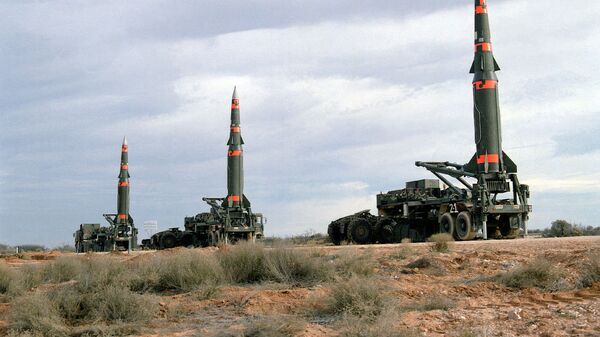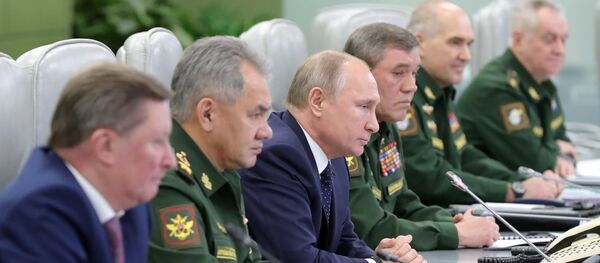Congress released the full text of Gabbard's bill, dubbed the INF Treaty Compliance Act of 2019, this week, with the proposed legislation originally introduced by the Hawaii congresswoman in mid-February for deliberation by the House Armed Services Committee.
Gabbard had earlier described Trump's decision to pull out of the 1987 treaty as a "reckless" move which could exacerbate "a new Cold War" with Russia. The bill has now been cosponsored by six Democratic lawmakers, including Ilhan Omar, James McGovern, Mark Pocan, Barbara Lee, Raul M. Grijalva, Eleanor Holmes Norton and Alexandria Ocasio-Cortez.
Dr. Sergei Sudakov, a professor at the Russian Academy of Military Science research center in Moscow, argues that the bill won't pass since it doesn't have the lobbying support from arms manufacturers.
"Obviously, with the termination of the INF Treaty, the US military-industrial complex will receive additional orders. This doesn't mean that the Gabbard initiative is in vain, however. It's possible that the discussion of the bill will cause a public resonance which will prevent the implementation of some of the lobbyists' plans," he said.
For his part, Konstantin Blokhin, a fellow at the Russian Institute of Strategic Studies think tank, said that the US exit from the INF was predestined before Trump ever stepped into office, with the Pentagon looking for any excuse to allocate funding for the development of new missile systems banned under the treaty, which restricts ground-based missiles in the 500-5,500 km range.
At the same time, Blokhin argued that individual politicians like Gabbard were "on the periphery within the US political elite," with a normalization of relations with Russia out of the question for the political mainstream, Democrat or Republican, while most ordinary Americans are concerned with domestic politics.
Pavel Podlesny, a researcher at the Moscow-based Institute for US and Canadian Studies, was similarly pessimistic. "It's in the interest of the current administration, and the overwhelming majority of lawmakers in Congress, to unleash a new cold war. They are confident that this is the most effective way to damage Russia and take it out of the running of global players. Moreover, opponents of this view are sometimes classified as 'Russian agents'," he said.
"There are no pro-Russian politicians in the US. People like Gabbard, in my opinion, have a more sensible understanding of the world than the ruling elite. They understand that without Russia, Washington will not be able to solve key global problems. Gabbard is disliked for having an independent position. I think that this can help her get quite a bit of support from voters," the observer concluded.
President Trump announced the US intention to withdraw from the INF Treaty late last year, with Washington formally starting the six-month procedure suspending US obligations under the treaty on February 2. The US has claimed that it made the decision due to treaty violations by Moscow with the ground-launched 9M729 cruise missile, which Washington claims has a range in excess of 500 km. The Russian Defence Ministry debunked the claims at a press briefing in January.
Moscow, for its part, has accused the US of deploying dual use missile defence system launchers in Poland and Romania which are said to be capable of firing nuclear-armed Tomahawk missiles. Earlier this week, Russian President Vladimir Putin warned that the US withdrawal from the INF was "a direct step toward the destruction of the entire system of agreements in the field of international security."




